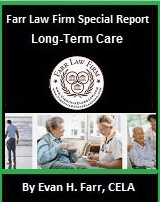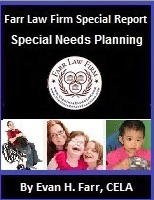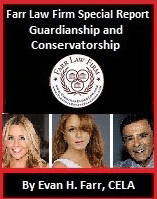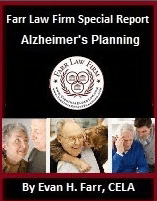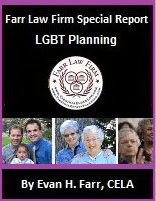We received two similar questions this week and will address them both.
Q1. My aunt opened a savings
account at her local bank for her son (my cousin) in the late 1980’s when my cousin was in college. When she opened the account for him, the bank representative, trying to be helpful, suggested that the account be opened in both her name and her son’s name so that she could access the account for him while he was away for college. My aunt forgot all about this account because in her mind it belongs to her son. Her son also considered the account to be his because that’s what his mom intended,
and he used the account over the years, never caring or even paying attention to the fact that his mother’s name was still on the account. Recently, my aunt suffered a serious stroke resulting in her needing to enter a nursing home, and my cousin, acting as his mom’s agent under her Power of Attorney, did the right thing by hiring a Certified Elder Law Attorney to do Medicaid planning and protect as much of his mother’s assets as possible in connection with getting her on Medicaid. Of course the
elder law attorney required my cousin to provide a complete list of all of his mother’s assets, which he did. Unfortunately, he didn’t even think about telling the elder law attorney about this joint account from his college days, because he knew it to be his account and didn’t even think about the fact that it still had his mother’s name on it. This led to a huge problem — after the elder law attorney worked his magic of using multiple Medicaid asset protection strategies to protect a large
percentage of my aunt’s assets and apply for Medicaid, they got denied for Medicaid because the state Medicaid office, in its standard search of assets, found this joint account, which had enough money in it to make my aunt ineligible for Medicaid because Medicaid counted all of it as belonging to her. My cousin now feels terrible that he didn’t think of reporting this joint bank account to the elder law attorney; he is beside himself with regret for not remembering that his mother’s name was
still on his account, and he is kicking himself for the fact that his failure to report this has now resulted in his mother being denied for crucial Medicaid benefits. Is this a common occurrence? Is there anything that can be done to avoid this type of thing?
Q2. My father purchased Gerber whole life insurance policies for me and my
brother shortly after each of us was born, knowing this could be a great financial benefit for us to have way down the road for our retirement, since these policies build up cash value that we can borrow from later in life. Recently, our father, who has had a degenerative neurological condition for years, wound up in a nursing home. My brother and I met with an experienced elder law attorney and decided to hire him to protect as much of our father’s assets as possible in connection with getting
Medicaid to pay for most of his nursing home care, so that he would not have to go broke in order to get Medicaid. My brother and I both have Power of Attorney for my father, and we worked together to get the elder care attorney a list of our father’s assets. Neither one of us thought to include these Gerber life insurance policies, as we both thought of these as “our” policies. After the attorney implemented all the asset protection strategies and applied for Medicaid, the Medicaid state agency
found these life insurance policies and counted their cash value as belonging to our father since he was the owner of these policies, and this caused our father to be denied Medicaid. We both feel terrible for not realizing that these policies were owned by our father and that the entire cash value would be attributed to him. Is this common, and what can be done to prevent this type of thing?



